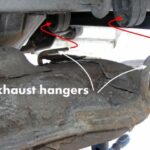When you’re struggling with car payments, the fear of repossession can be overwhelming. A major concern for many car owners in this situation is understanding the process and, crucially, whether they will receive any advance warning before their vehicle is repossessed. Knowing your rights and what to expect can help you navigate this stressful situation and potentially take steps to mitigate the impact of a car repossession.
Notification Requirements for Car Repossession
One of the most pressing questions for individuals facing potential car repossession is: Do I receive notification on a car repo? The answer, unfortunately, is not always straightforward and can depend on your loan agreement and state laws. However, understanding the general principles can provide clarity.
Is Advance Notice Legally Required?
In many jurisdictions, creditors are not legally obligated to provide you with advance notice before repossessing your vehicle. This might come as a shock, but legally, the moment you default on your car loan – which could be as little as one missed payment – your lender often has the right to repossess the vehicle.
Your car loan agreement is a binding contract, and within it are clauses that outline the conditions under which the lender can repossess the car. Missing payments or failing to maintain insurance are common triggers for repossession. The lender’s right to take the car stems directly from this contract, and often, no further warning is legally required beyond the initial loan agreement itself.
What Kind of Notification Can You Expect?
While advance notice before the repossession act itself might not be mandatory, you will typically receive notifications after the repossession has occurred. These post-repossession notices are crucial and contain important information about your rights and options.
These notifications generally include:
- Notice of Repossession: This confirms that your vehicle has been repossessed and usually outlines the date of repossession.
- Notice of Sale: This is perhaps the most critical notification. It informs you about the lender’s intention to sell your repossessed vehicle. This notice must include details about the sale, such as:
- Whether the sale will be public or private.
- The date, time, and location of a public sale, allowing you (and potential bidders you bring) to attend.
- If it’s a private sale, the date after which the vehicle will be sold.
This Notice of Sale is your opportunity to understand how the lender will attempt to recoup their losses and what your financial obligations will be moving forward.
What Happens After Repossession
Understanding the notification process is just the first step. Knowing what happens after your car is repossessed is equally important.
Sale of the Vehicle
After repossession, the lender will sell your vehicle to recover the outstanding loan amount. As mentioned, they must notify you about this sale. The sale must be conducted in a commercially reasonable manner.
Deficiency Balance and Surplus
After the sale, several outcomes are possible:
- Deficiency Balance: If the sale price of the car is less than the amount you still owed on the loan (including repossession costs), you are responsible for paying the “deficiency balance.” The lender will pursue you for this remaining debt.
- Surplus: In the less common scenario where the sale price exceeds your loan balance and repossession costs, the lender is obligated to return the surplus funds to you.
Protecting Yourself from Repossession
Prevention is always better than cure. If you anticipate difficulties in making car payments, proactive communication is key.
Communication is Key
Contact your lender as soon as you realize you might miss a payment. Many lenders are willing to work with you to create revised payment plans or explore options to avoid repossession. Lenders often prefer to find solutions that keep you paying rather than going through the repossession process.
If you reach a new payment agreement, ensure you get it in writing. Verbal agreements are difficult to prove and may not be honored. Having a written agreement protects you and clarifies the revised terms.
Understand Your Contract
Carefully review your car loan agreement. Understand the terms related to default, repossession, and your rights. Being informed is your best defense against unexpected actions and helps you understand the lender’s legal rights as well as your own.
In conclusion, while you may not always receive advance notification before a car repossession, you are entitled to notification after the repossession, specifically regarding the sale of the vehicle. Understanding this, and proactively communicating with your lender, are crucial steps in managing the risk of car repossession and protecting your financial interests. If you are facing repossession, consulting with a legal professional can provide you with tailored advice based on your specific situation and local laws.

